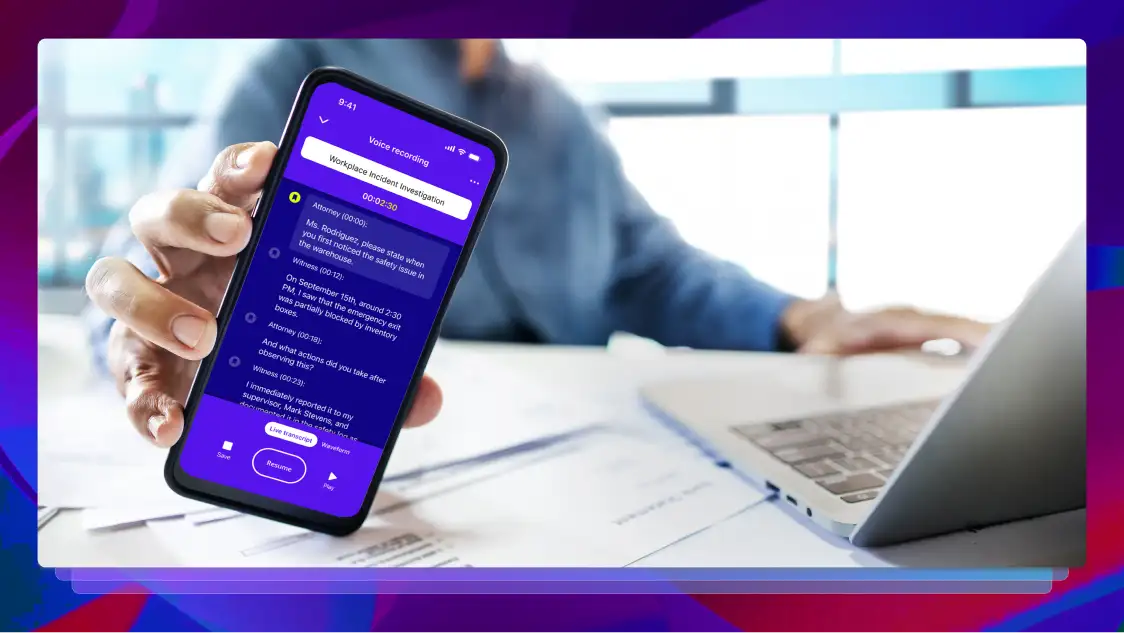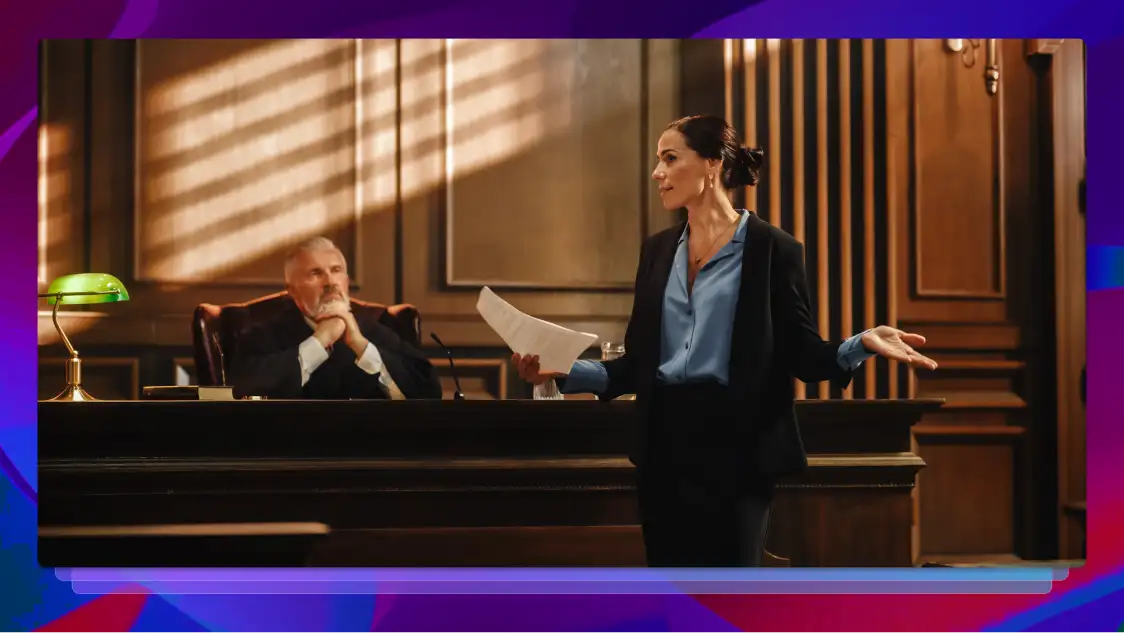13 YouTube SEO Tactics to Boost Your Viewership
Want to optimize your YouTube SEO strategy? Start with these 13 tactics that will help your video skyrocket to the top of YouTube.

In today’s internet landscape, everything can be optimized, from TikTok, to blog posts, and even a YouTube channel. While YouTube may look like a simple practice of “shoot and upload” on its head, smart content creators have employed SEO techniques to drive viewers to their videos and appear first in search. And we should know, since we partner with YouTube to deliver quality captions for great videos.
But what is YouTube SEO, and how can you master it? The basics: good YouTube SEO boils down to creating relevant content and adding the right keywords and tags into your video descriptions. Let’s walk through some top YouTube SEO tips and tricks for mastering SEO on YouTube.
1. Do Keyword Research Before Shooting
A perfectly shot and edited video might not perform well if users aren’t interested in its subject. Keyword research is crucial in many areas of content creation and success, including YouTube. Do research to find out what the top YouTube searches are in your market, so you can see what viewers are actually searching for and tailor your content plan to meet those needs.
Pro tip: Strong keywords don’t always mean the ones with the most searches per month. Look for keywords that are growing in popularity and converting from searches to clicks to make videos that will generate a curious audience.
2. Write an Engaging Video Title
If you were a travel content creator creating content about traveling to Slovenia targeting the keyword “Slovenia travel guide,” which of these video titles do you think would pique your viewers’ interest more?:
- Slovenia travel guide: where to go and what to do
- The ultimate Slovenia travel guide: X hidden gems in Slovenia
The second, right? It’s possible to include keywords in your video title while still writing something that is going to draw viewers in. Plus, the second video title incorporates another keyword as well: “hidden gems in Slovenia.”
Pro tip: Avoid clickbait in your video titles — most viewers don’t appreciate titles that aim to create shock value. Give them an actual idea of what your video is about.
3. Include Keywords In Your Video Description
If a video’s title is the fishing rod, the description is what’s going to reel the viewer in. It’s one final chance to sell your video as the right one to watch. But video descriptions do more than just entice readers, they may also help your video rank.
Since video descriptions are longer than titles, too, it’s a good opportunity to insert some secondary keywords — just be careful not to overdo it. No one wants to read a novel before getting into your video.
Pro tip: Don’t insert keywords just to insert them. Be intentional and make sure they flow with your content so they don’t seem awkward.
4. Tag Your Video
While tags might not be crucial to good YouTube SEO optimization, they definitely help get your video in front of the right audience. They give YouTube a few main keywords to focus on when sorting your video, and help viewers find your content.
Brainstorm a few tags to add to your video description, using only the relevant keyword and a few secondary keywords, so YouTube knows exactly what your video is about.
Pro tip: Too many tags might confuse YouTube about the actual purpose of your video, so don’t overload it.
5. Create an Engaging Thumbnail Image
Aesthetics go hand-in-hand with an SEO strategy. If you do the appropriate work to add keywords and strategy into your video copy, people may still not click if your video isn’t visually appealing. Create an engaging and devoted thumbnail image instead of just a still from your video. Consider putting the video’s title in text on the thumbnail image as well.
Pro tip: Use color as a tool in your thumbnail image — color can attract viewers’ eyes and make them more likely to click on your video.
6. Add Your Keyword to Your Video’s File Name
No one will see your video’s file name when you upload it, but that doesn’t mean it isn’t important to your YouTube SEO strategy. Adding your main target keyword into your video’s file name before you upload it can help YouTube’s system register what the video is about when promoting it.
Pro tip: Add dashes into the keyword in the file name. For example, if your target keyword is “how to pot a pothos,” your video file name would be “how-to-pot-a-pothos.”
7. Add Captions
Captions are a huge component of Video SEO, and are necessary for your YouTube strategy. They are automatically generated by YouTube as an accessibility feature for people who are deaf or hard-of-hearing. But if you don’t input the captions yourself, YouTube may transcribe your video incorrectly and confuse your viewers.
Take a moment to input captions into your Youtube video, not only to make your video more clear but also to give YouTube more text to pick up on when promoting your video.
Pro tip: If your video is long, you can use an automatic transcription software (like Rev!) to do your transcriptions. Then all you have to do is check that they’re correct.
8. Make Longer Videos
If someone is navigating to YouTube for an answer to their question, they’re usually not looking for a superficial, short-form video. And you usually can’t say everything you need to say in just a couple of minutes.
Your video can serve your viewers better if you spend more time diving into your keyword — or keywords can help give you more content to cover in your video, since you know exactly what people are searching about in your specific topic. So as a general rule, go a little more in-depth and take time to create a comprehensive video.
Pro tip: As always, video length is about finding a good balance. Don’t add length to your video just to make it longer. Make sure all content remains relevant and helpful.
9. Select a Category for Your Video
YouTube has many ways to help you get your content in front of the right audience, including categories like nature, sports, travel, gaming, etc. Selecting the right category for your video when uploading it is another way you can tell YouTube more about your video so it can be properly promoted.
Pro tip: Aim for accuracy with your categories. While a related category may be technically more popular, being accurate with your categorization can make sure your video is getting more meaningful clicks.
10. Add Keywords Into Your Channel Description
Channel keywords won’t be as specific as video keywords, but they can still give YouTube an idea of your channel’s focus and target audience. Select one or two of your main focuses for your channel, pick keywords that have a decent amount of search volume and align with that concept, and add them into your channel description.
Pro tip: Add keywords into the “About” section of your channel as well as the keywords section of your channel settings.
11. Utilize Ending Screens
Ending screens are a great way to promote your other videos and keep your audience loyal to your channel. You can also utilize ending screens to get more subscribers to your YouTube channel. A few ending screen best practices:
Your video must be 25 seconds long to be eligible for an ending screen
You can’t use ending screens for kid’s videos, YouTube music, flash videos, mobile, or 360 videos
Pro tip: Use ending screens to promote a mix of things — from other videos, to other channels, to your subscription button — so they can help you grow in different ways.
12. Up Your Production Quality
Again, YouTube is a visual medium. So while you may win with script content and strategy, a video with better aesthetics might outperform you. Encourage viewers to choose your videos every time by upping your production quality with things like lighting, camera quality, and editing.
Pro tip: It isn’t all about buying the most expensive camera equipment to up your video quality. You can film videos with an engaging background and nice lighting to make them look more professional, and use editing tools to make your video more engaging on a budget.
13. Add Timestamps to Your Videos
When you create a longer-form video with lots of information, users may be looking for information from one, specific part. You can help viewers find what they’re looking for quicker by adding timestamps into your video that guide users to different sections. Plus, these can help YouTube register what content is in the video.
Pro tip: You can even add a video timestamp into your video’s URL if you need to — for example, if you want to point to a specific part of your video on social media or in an anchor link of a blog post. To do so, add &t=Xs after the URL, where X is the number of seconds into the video you want to timestamp.
YouTube Ranking Factors
On YouTube, quality videos by knowledgeable channels will help your content win. While there are many ranking factors that might make your videos do well on YouTube, there are a few that may help more:
- Audience retention
- Views
- Watch time
- Click-through rate
Focus on generating and keeping an audience of loyal viewers who will watch your videos the full way through and return for more in the future. You can do this by focusing on the steps above to make the most informative, appealing, and engaging videos possible.
The Benefits of Optimized Videos
People who search for and watch videos are often searching for a specific need, interest, or want. Optimized content can make sure videos that fit those needs are delivered right to their intended target. Optimizing your content is a win for both you and your potential viewers: it’ll bring interested parties to your video, while also making sure the viewers are able to find exactly what they’re looking for.
YouTube SEO Tools
There are a variety of tools out there that can help you grow your YouTube channel. Here are some of our favorite YouTube SEO tools:
- Google Trends: Google Trends can help you track whether interest in your chosen keyword is on the rise or decline. You can use it to help with your YouTube SEO strategy by tailoring it to YouTube.
- YouTube Autocomplete: The best place to look for the most-searched keywords on YouTube might just be YouTube itself. The autocomplete feature on YouTube search can help give you some insight into what users are searching for. Type in a basic part of your keyword, then use autocomplete to tailor your content.
- TubeBuddy: TubeBuddy can help creators with YouTube keyword research and content creation, to not only help them decide which videos to create but also to make sure those videos perform well in search.
- Rev Captioning Services: Our caption services can make sure your video captions are accurate and quality, which will help boost SEO and keep your videos inclusive for all viewers.
Reel Viewers In And Keep Them Hooked
These YouTube SEO best practices will not only gain you viewers, but will also help keep them around for the long run. But SEO isn’t the only thing to focus on when it comes to your video content: accessibility is just as important.
You can make your channel accessible to everyone by ensuring that the subtitles on your videos are accurate to your content, meaning everyone can enjoy the hard work you’ve put into your YouTube SEO.
Let Rev help with our auto-captioning software.
Subscribe to The Rev Blog
Sign up to get Rev content delivered straight to your inbox.



